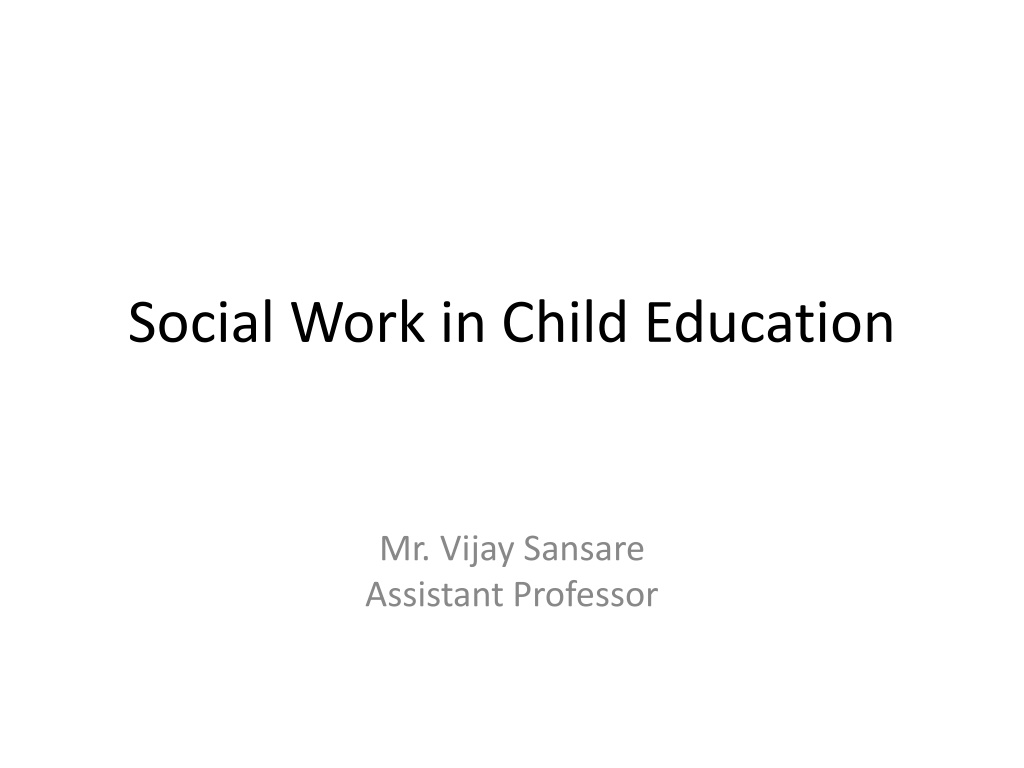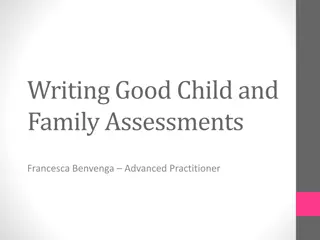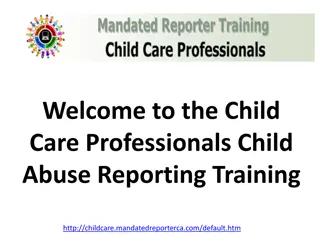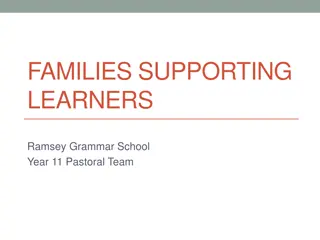
Understanding the Role of Social Work in Child Education
Explore the significant impact of social work in child education, focusing on enhancing learning experiences, addressing behavioral and familial issues, and promoting equal treatment for all pupils. Learn how social workers support students facing challenges in education to maximize their potential and well-being.
Download Presentation

Please find below an Image/Link to download the presentation.
The content on the website is provided AS IS for your information and personal use only. It may not be sold, licensed, or shared on other websites without obtaining consent from the author. Download presentation by click this link. If you encounter any issues during the download, it is possible that the publisher has removed the file from their server.
E N D
Presentation Transcript
Social Work in Child Education Mr. Vijay Sansare Assistant Professor
Introduction Education recognized today as a fundamental human right. Educated people become more autonomous, make informed choices and take advantage of available opportunities. They are able to maximize their potential and lead more fulfilled lives. Poorly educated people, on the other hand, are more likely to be dependent on others particularly school education, is
Introduction The twin function of teaching subject matter and personality development, it is required to enrol and retain children till the task of schooling is complete. It is expected to prepare young people for career opportunities functioning in society. and for healthy
Introduction Inspite schooling, many children do not get enrolled in school or drop-out of it due to poverty or other reasons. In such cases, effort is made to teach them by alternative means, such as non-formal classes or later through adult education programmes. Social workers enhance the social functioning of individuals through maximum utilization of their inherent potential. of the recognized importance of
The Purpose of Social Work Practice in Child Education The skills of social workers are used in improving efficacy of education sector. By maintaining the school-home-community linkage, they help education achieve its central purpose. They prevent or deal with behavioural, economic, familial and scholastic problems, which interfere in learning. Relieved off the pressure, the learner then makes the maximum utilization of learning experiences. In short, social work represents the human factor in education.
Social Work Values in Education Each pupil is valued as an individual with unique characteristics. Each pupil should be allowed to participate in the learning process and to learn. Individual differences should be recognized, intervention should be geared to individual needs. Each pupil, regardless of race or social economic characteristics, has a right to equal treatment.
Issues to Work School social workers support students who are struggling with mental, emotional, social, behavioural, and/or familial issues that are negatively impacting performance and overall well-being. their academic The high dropout rate, absenteeism, academic underachievement, ill health, etc
Social Work in Education Private Schools Municipal Schools
Private Schools Induction in Maharashtra Induction in Delhi
Municipal Schools The municipal schools in our country are run by local bodies and provide free education to the urban poor. Large number of children attending these schools are first generation learners and lack financial and other requisites to accomplish the task of schooling.
Municipal Schools Two Corporation of Greater Mumbai and New Delhi Municipal Committee responded to the above challenge by undertaking school social work programme. Municipal bodies the Municipal
Scope for Social Practice School social workers support students through individual and group counselling, conflict mediation, interventions to address crises, resource navigation services, and the development and implementation of school programs School social workers can work in a number of different settings, including public schools, private schools, and academic programs that serve vulnerable populations.
MODELS OF SCHOOL SOCIAL WORK PRACTICE Alderson (1972) has introduced four models of school social work to which Costin (1975) has added another Traditional Clinical Model School Change Model Community School Model Social Interaction Model School Community Pupil Model






















